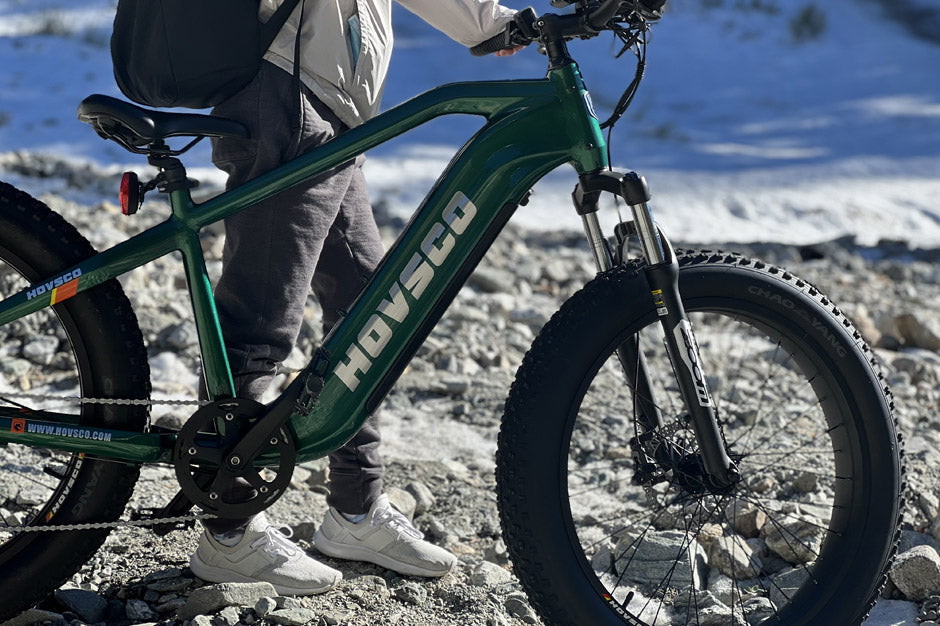
5 Important Beginner Cycling Tips
Are you a cycling beginner looking to get the most out of your bike? Or does an experienced rider want to fine-tune their technique? Look no further than this blog post for essential tips for cyclists. Here, we explore five important points everyone should consider when getting started with cycling: from choosing the right gear and equipment to learning proper posture and gaining bike confidence. Read on to find out how you can use these best practices so you can get the most enjoyment out of each ride!

5 Important Beginner Cycling Tips:
1) Stay Safe While Cycling: Remember to Wear Your Helmet:
Cycling is a great form of exercise, transportation, and a way to enjoy the great outdoors. However, it is important to prioritize safety when cycling, especially as a beginner. The first and foremost tip for beginners is always to wear a helmet and fasten your seatbelt. A helmet is the most important piece of cycling gear as it can save your life in case of an accident. Make sure your helmet fits properly and is certified by a reputable organization such as the Consumer Product Safety Commission (CPSC) or the Snell Memorial Foundation.
Additionally, wear bright colors and equip your bicycle with a bell or horn to notify other cyclists and drivers of your presence.
2) Know Your Bike: Find the Right Fit and Check Your Gears Regularly:
It is important to know your bike before you hit the road. As a beginner, finding a bike that is the right fit for you can help ensure that cycling is comfortable and enjoyable. Start by measuring your inseam (distance between your heel and crotch), and then use this to determine the bike size best for your body. Also, check your gears regularly to ensure they are functioning properly, and remember to oil them if necessary. Knowing how to shift your gears correctly can also help you conserve energy as you cycle, so take the time to practice this skill.
3) Learn Proper Posture:
Improper posture when cycling can lead to fatigue and discomfort. To ride efficiently, it is important to maintain a proper posture while cycling. Keep your back straight but relaxed, and make sure your arms remain bent at a 90-degree angle with your palms facing down. Additionally, keep your pedals in line with each other. This will prevent any cramping in your legs or potential injury due to uneven pedaling. The right posture will also help you to feel more in control and gain greater bike confidence.
4) Adjust Your Seat Height for Comfort:
Many beginner cyclists fall into the trap of ignoring seat height or adjusting it incorrectly. To keep your rides comfortable, it's important to ensure your seat is set at the right height. Adjust it so that when you're seated on the bike with one pedal facing upward, your extended leg is slightly bent at the knee. This helps prevent pain and discomfort during long rides and boosts cycling efficiency by ensuring a better energy transfer. So don't forget to adjust your bike seat. It's a step worth taking!
5) Fuel Your Ride with Proper Nutrition:
Just like any other form of exercise, cycling requires proper nutrition to keep your energy levels up and maximize performance. Before heading out for a ride, make sure to eat nutritious foods like lean proteins, fruits, and vegetables to provide your body with essential nutrients. Additionally, hydrate regularly throughout the ride; a good rule of thumb is to drink about eight ounces of water for every 20 minutes spent cycling. Taking care of yourself during your rides can help ensure you have enough energy and endurance to get the most out of each ride!
What Are Some Effective Ways For A Beginner To Improve Their Cycling Skills?
Cycling is a great way to stay fit and healthy, but it can be challenging for beginners to get started. Here are some effective ways to improve your cycling skills as a beginner:
1) Start with the basics:
Before becoming a great cyclist, you must master the basics of cycling. This includes things like proper bike fit, pedaling technique, and how to use your gears.
2) Build endurance:
Cycling is a great way to build endurance but takes time and consistent effort. Start with shorter rides and gradually increase your distance and duration as your fitness improves.
3) Practice hill climbing:
Hill climbing can be one of the most challenging aspects of cycling, but it's also one of the most rewarding. Try to find a variety of hills with different gradients and work on your technique and endurance.
4) Join a cycling group:
Cycling groups are a great way to meet other cyclists, learn new skills, and push yourself to improve. Look for a group that matches your ability level and interests.
5) Get a coach or take a class:
If you're serious about improving your cycling skills, consider getting a coach or taking a class. A coach can help you set goals, develop a training plan, and provide feedback on your technique.
6) Take care of your bike:
A well-maintained bike will help you ride more efficiently and reduce the risk of breakdowns. Learn how to perform basic maintenance tasks like cleaning, lubricating, and adjusting your bike.
Remember that cycling is a lifelong pursuit, it takes time and practice to improve. Be patient, stay consistent, and enjoy the journey!
Conclusion
If you're new to cycling, following these five tips will help you get started on the right foot. Once you have the basics down, you'll be able to enjoy all that cycling has to offer. Just remember to start slow, invest in the right gear, and be aware of your surroundings. With a little practice, you'll be biking like a pro in no time.
































Leave a comment